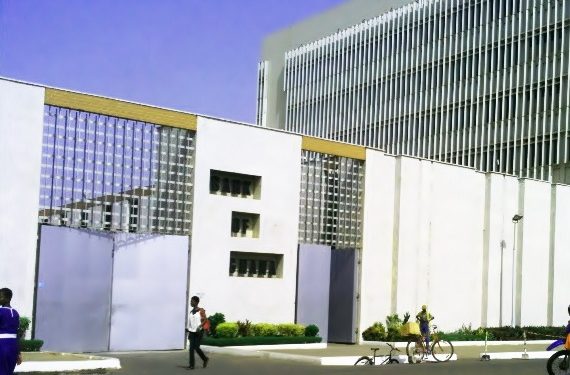The Bank of Ghana(BOG) cannot decline participation in parliamentary investigations into the revocation of the banking licences of Unibank and UT Bank, Dr. John Gati, an Economist, has said.
In an interview with the Ghana News Agency, he said the Central Bank ought to realize that it was an institution created by the Constitution and that it was accountable to the people through Parliament and therefore, it could be called upon to assist the House to uncover any situation.
The BOG was invited to appear before Parliament to assist with investigations into the revocation of the banking licences of Unibank and UT Bank.
The Central Bank declined the invitation but rather brought up a response on its mandate and statutory powers to undertake the banking sector clean up exercise.
Writing through its lawyers, Bentsi-Enchill Letsa and Ankomah, the Central Bank said the petitioners, Prince Kofi Amoabeng and Dr Kwabena Duffour, owners of the two banks, were seeking to procure Parliament to review decisions it has taken.
The BoG further said its decision was taken according to its statutory powers under the Banks and Specialized Deposit Taking Institutions Act, (BSDTI) 2016 (Act 930).
“The BSDTI Act provides how persons who are aggrieved with such decisions may seek redress for their grievances, and the prescribed resolution mechanisms do not include recourse to Parliament.”
He said it depends on the angle the situation was been looked at from, because it was the Bank that undertook the reform programme that affected the two banks negatively.
He said Management of Unibank felt the Bank did not follow the law including the rights of the owners of the Bank, hence the petition to Parliament to investigate.
Dr Gati said the first question was that on what basis did UT also petition Parliament? It was because BOG was one of the entities which should from time to time account to the people of Ghana through Parliament.
The Economist said if BOG through its operations had done something that negatively affected a citizen and the matter went to Parliament through a petition, it was only proper for the Central Bank to make itself available to recount its part of the whole issue for Parliament to take a decision that reflected objectivity and proper process.
“l believe that is the reason why the Central Bank is being called upon to provide and support Parliament to investigate the matter,” he added.
On the other hand, he said it was the Central Bank that undertook the exercise, which affected these banks, “so if Parliament was contacting BOG, was it not in respect to judging the work they have done or not?”
Dr Gati said Parliament had the right to call the Central Bank and any institution that it has oversight responsibility to assist it in determining whether the right of a citizen had been abused or not or whether the laws had been applied in the discharge of their work or not.
“But as it is, it will also seem as though the Central Bank is being brought under judgment, which the Bank may think that the proper forum should be the court, so l believe that is where the issue is heading to,” he said.
The Economist said it should also be placed on record that there were situations where Parliamentarians complained that the BOG was not forthcoming, especially appearing before Parliament to answer various questions that they believed needed answers as provided for by the Constitution.
He said, “l believe the Central Bank might be waiting for someone to go to court, so that we seek the same interpretation that came along with similar case of the appearance of the Electoral Commission Boss to testify, since they have first-hand knowledge, maybe that may be what is encouraging them to behave the way they are behaving.”
“Its fundamental, the BOG is accountable to Parliament and it has power to call upon the Central Bank to account for how they have undertaken their operations and those things are very clear in the Constitution and a different interpretation cannot have been given,” he said.
He said for this particular issue, the next stage would have to be a constitutional interpretation and so gradually it was moving towards the issue of constitutional interpretation on the accountability relationship between Parliament and the BOG.
The Central Bank also indicated that the two Bank owners, by petitioning Speaker Alban Bagbin, have invited the legislature to issue instructions to it in the performance of its constitutionally mandated duty of promoting economic development and the efficient operation of a banking and credit system in the country.
This, BoG argues, is contrary to section 3 (2) and section 4 (1A) of the Bank of Ghana Act, 2002 (Act 613).
The Central Bank’s response comes after Mr Kofi Amoabeng and Dr Kwabena Duffour petitioned Parliament to probe BoG’s conduct and the Ghana Stock Exchange over the withdrawal of their banking licences.
The petitioners, amongst others, prayed Parliament to order BoG to restore their licence.
Parliament, after setting up a seven-member committee to probe the issues, asked the Central Bank to file a response to the petition.
But in a detailed response through its lawyers, the Bank observed that “It will not participate in the investigation being conducted by Parliament,” arguing that, the probe “flies in the face of the Constitution.”







